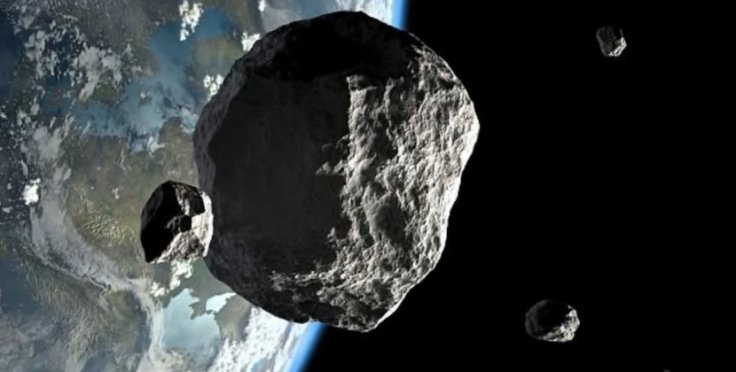
A latest report has revealed that our Earth had a close brush with a giant asteroid that was as big as a double decker bus. The huge space rock named as 2017 YZ4 passed by Earth at a distance of just 139,433 miles (approximately 224,396 km).
The astronomers spotted the asteroid, which is not more than 15 metres (49 feet) in diameter, and defined its flyby as a "near miss" by them. It was detected on Christmas Day by the experts before it passed by Earth on December 28 at a pace of 21,000mph (around 33,790 kmph).
"This is the first known asteroid to fly by Earth within one lunar distance since two such asteroids flew past us 35 minutes apart on November 21," a NASA spokesperson told the Express.
"As of December 24, there are 17,495 known near-Earth objects (NEOs) around our planet.17, 389 are asteroids. This year, we discovered 1,985 new near-Earth asteroids. There were 1888 such objects discovered in 2016 and 1,571 in 2015," he added.
NASA monitors all those celestial bodies that travels by Earth within the range of 6 million miles and takes the required steps in case of a possible collision. According to experts, asteroids that fly past Earth at a distance of 4.6 million miles are quite dangerous.
The report said that if the asteroid had collided with Earth instead of passing by it, some serious damage would have occurred.
Earlier, NASA had predicted that asteroid named 2002 NT7 would hit Earth on February 1, 2019 at 11:47am GMT at a speed of 17 miles per second. The astronomers said that the impact would be equal to that of 30 million nuclear bombs.
However, the US space agency later changed the statement and stated that there was nothing to worry about the incident. Reports claimed that NASA changed its statement after re-evaluation but conspiracy theorists were saying that it was a clear cover-up by the agency.









